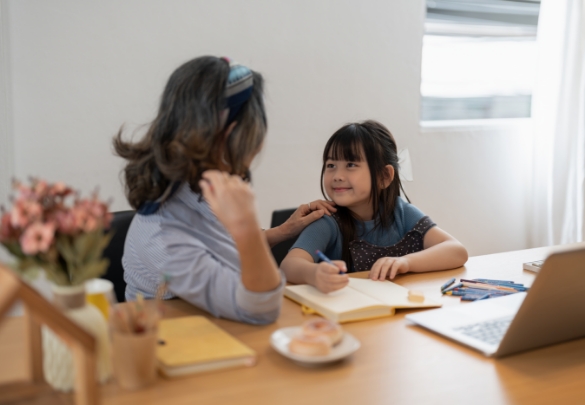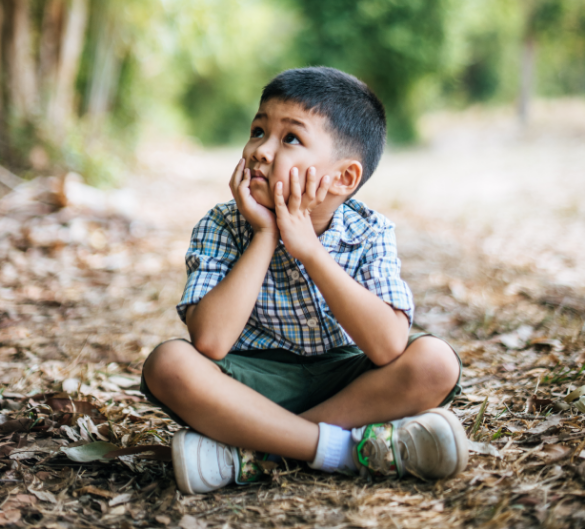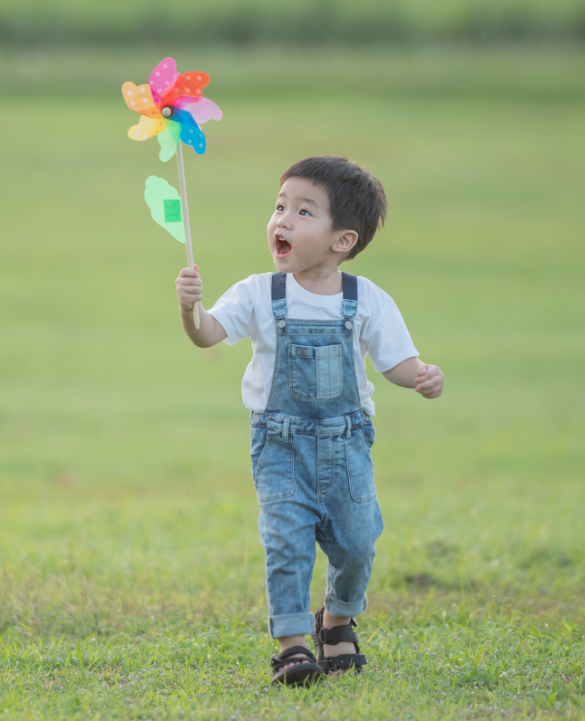
Children & Youth Counselling in Singapore |
At EMCC, we provide Children & Youth Counselling in Singapore to support young individuals navigating life’s challenges. Our tailored counselling services offer a safe, nurturing space where children and youths can express themselves freely, build resilience, and develop healthy coping strategies for emotional and behavioural growth.
Empowering Young Minds with Child & Youth Counselling in Singapore
Child and youth counselling play a crucial role in supporting young individuals in Singapore as they face emotional, behavioural, and social challenges. Through personalised guidance, counselling equips children and youths with the skills to navigate challenges, cultivate emotional awareness, and foster personal growth.
From managing academic stress and peer pressure to navigating family conflicts and mental health issues like anxiety, depression, or trauma, counselling fosters open communication and empowers young minds to overcome obstacles and grow with confidence.

Recognising the Signs: When Child Counselling Can Help

|
It’s important to consider counselling when your child exhibits significant changes in behaviour or emotional well-being that is out of the norm:
Seeking youth counselling early in Singapore can provide your child with the necessary tools to navigate these challenges effectively. |
Hence, it may be useful to take steps forward to address any underlying issues that may be existing to provide your child with the necessary support by equipping them with the necessary coping strategies during trying times.
Addressing Emotional and Social Struggles Through Child Counselling in Singapore
At EMCC, we understand that every child faces unique struggles. Our child and youth counselling services in Singapore are designed to provide the right support, helping young minds overcome emotional, behavioural, and social challenges with care and guidance:
Family Changes:
Coping with divorce, separation, or the loss of a loved one.
Bullying and Peer Pressure:
Navigating negative peer interactions that affect self-esteem.
Academic Struggles:
Managing frustration and behavioural issues linked to difficulties in school.
Emotional and Behavioural Challenges:
Addressing anxiety, depression, and anger management.
Special Educational Needs:
Supporting children with ADHD, Autism, Dyslexia, or developmental delays.
Trauma and Abuse:
Healing from exposure to traumatic events, neglect, or abuse.

Note:
You will need to accompany your child or youth for the first session. Our counsellor will decide to see your child/youth alone or jointly with you for subsequent sessions.
For younger children who may find it hard to describe their inner state verbally, expressive art, music, body movement or play can
be used.
Read more about Play Therapy below.
What Counselling Can Do For Singaporean Youths
Child and youth counselling in Singapore offer numerous benefits, providing a safe, supportive space where young individuals can develop life skills and emotional resilience.

Relieving Academic Stress
Counselling helps manage academic pressures through coping strategies, emotional support, and tools to improve time management and confidence. It encourages open expression, reducing anxiety and fostering resilience.

Improved Communication And Relationships
Through counselling, children can improve their communication skills, leading to better relationships with peers, family, and teachers. They learn to express their needs and feelings assertively.

Self-Esteem And Confidence Building
Children are empowered to believe in themselves and their abilities. Through addressing negative self-talk and building self-worth, children can develop a stronger sense of identity.

Relieving Academic Success
Counselling can help children and youth manage academic stress by providing them with coping strategies, emotional support, and tools to improve time management and self-confidence. It creates a safe space for them to express their concerns, reducing anxiety and fostering resilience.

Overcoming Challenges
Children are allowed to process their experiences, develop coping strategies, and find healing.
If you sense that your child is struggling, child counselling can offer the compassionate support and tools they need to thrive.
Creating a Supportive Environment for Growth
Children and youths who often struggle with family conflicts, academic pressures, peer relationships, and self-expectations may experience adverse childhood experiences that may impact their mental wellbeing. These challenges can manifest as anxiety, withdrawal, or disruptive behaviour, making communication difficult.
During such times, seeking professional help through child counselling or youth counselling in Singapore can be transformative. By taking the first step and acknowledging the challenges being faced, your child or youth can then actively work on overcoming them, gaining a renewed sense of confidence in the process. With the right guidance, they can develop the skills needed to navigate life’s complexities.
Why Choose EMCC for Your Child?
We prioritise your child’s emotional well-being through our tailored child counselling and youth counselling services in Singapore .

Experienced And Caring Counsellors
Our counsellors are specially trained to work with children and youths, providing a nurturing space where they feel understood, supported, and encouraged to share their thoughts and emotions.

Fun And Engaging Sessions
We collaborate with youths to cater age appropriate sessions that encourage openness and make learning new coping skills easier.

Tailored Support
We recognise that every child is unique, and create personalised counselling plans to address specific challenges and support their growth.

A Brighter Future
By choosing EMCC, you’re prioritising your child’s happiness and success. We’ll work together to build their confidence, resilience, and overall well-being.

Harnessing Play for Emotional GrowthPlay Therapy is an effective approach in child counselling in Singapore, especially for children aged 3–12 who may struggle to express their feelings verbally. Through play, children use toys as their language, acting out emotions and experiences they find difficult to articulate. Play Therapy can support children dealing with medical procedures, behavioural issues, family changes (such as divorce or bereavement), anxiety, depression, trauma, and more. Parental involvement is key, with initial and regular sessions to ensure collaborative support both in and outside the therapy room. The parent’s role in Play Therapy is vital. The Play Therapist will meet both parents (or at least the parent who will bring the child for the therapy sessions) for the first session. Your involvement as parents in the process of play therapy will bring more positive outcomes for your child. The Play Therapist will have regular check-ins with you for update and feedback on how to help your child outside of the playroom. |
FAQs about Children & Youth Counselling in Singapore
1. Does my child need my consent for child counselling in Singapore?
Generally, yes. Parental or guardian consent is required for children under 18 to attend counselling. In cases of immediate risk, counsellors may proceed without prior consent. To gain a better understanding about the process, visit our About page.
2. Will the counsellor share the outcomes of the counselling sessions with me?
Open communication between the counsellor, child, and parent is essential for effective child counselling in Singapore. While confidentiality is important, counsellors will typically share updates on your child’s progress, but only with your consent. Feel free to contact us for further enquiries or clarification.
3. What happens if the counsellor finds that my involvement is critical to the counselling process?
If our counsellors believe that parental involvement is crucial to the child’s progress, they may recommend family counselling sessions or suggest ways for you to support your child’s therapy. Open communication and collaboration between parents and counsellors are key. For personalised advice, consider reaching out through our enquiry form.
4. Will my child improve after the counselling sessions?
The outcome of youth counselling in Singapore varies depending on your child’s specific needs and circumstances. While improvement is often seen, it’s important to remember that therapy is a process that requires time and commitment. Positive changes can be gradual but significant. Learn more by contacting us here.
Subscribe
to our Newsletter
|
6788 8220 For job opportunities, please email hr@emcc.org.sg
100 Victoria Street, |
Mondays, Tuesdays & Fridays
9am – 6pm
Wednesdays & Thursdays
9am – 9pm
Saturdays
(Closed on 5th Saturday of the month)
9am – 1pm
Closed on public holidays
EMCC seeks to help individuals and families manage relational challenges, build emotional resilience, and maintain psychological health and mental wellness through counselling and mediation services, as well as training and education programmes.

